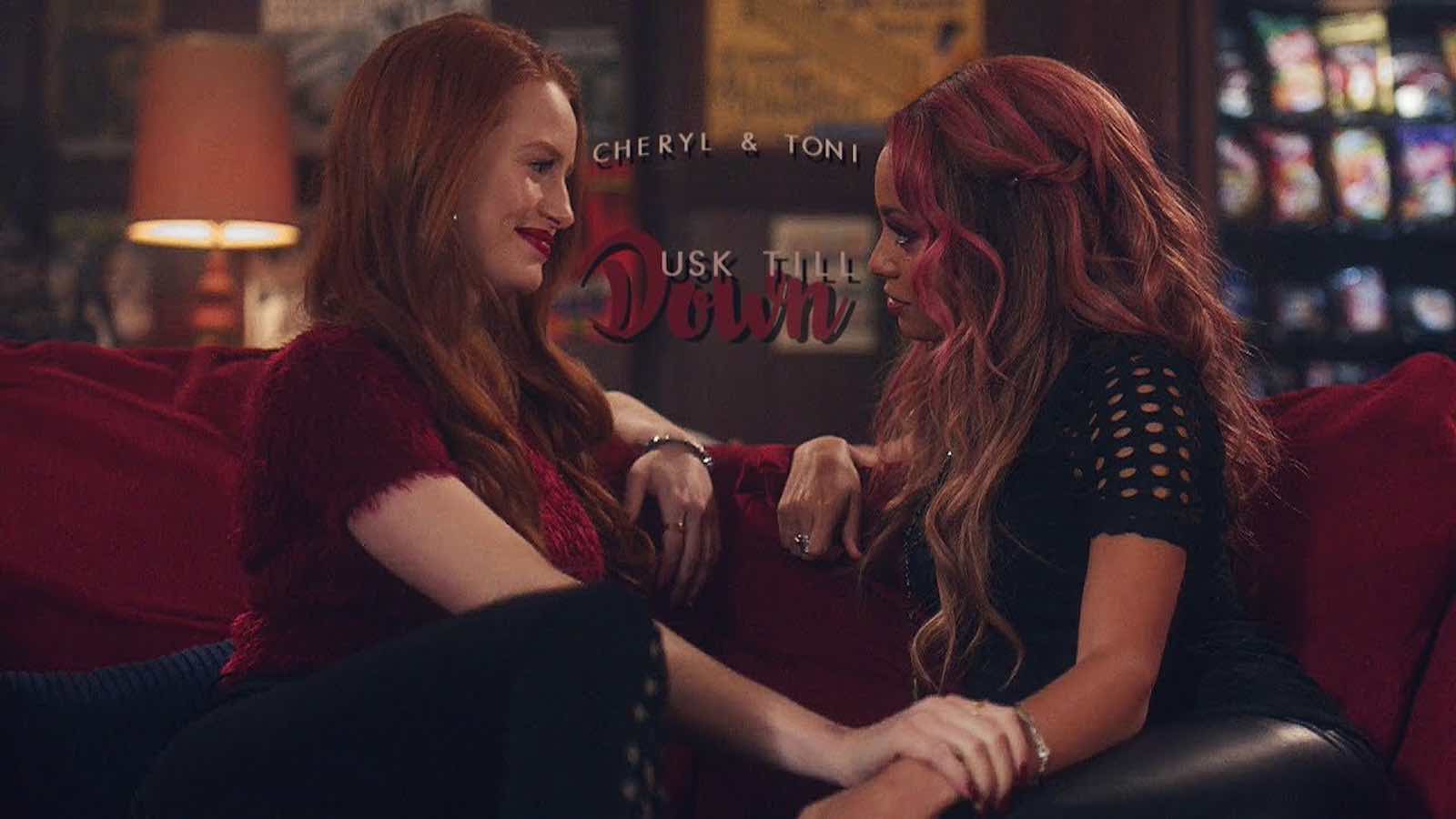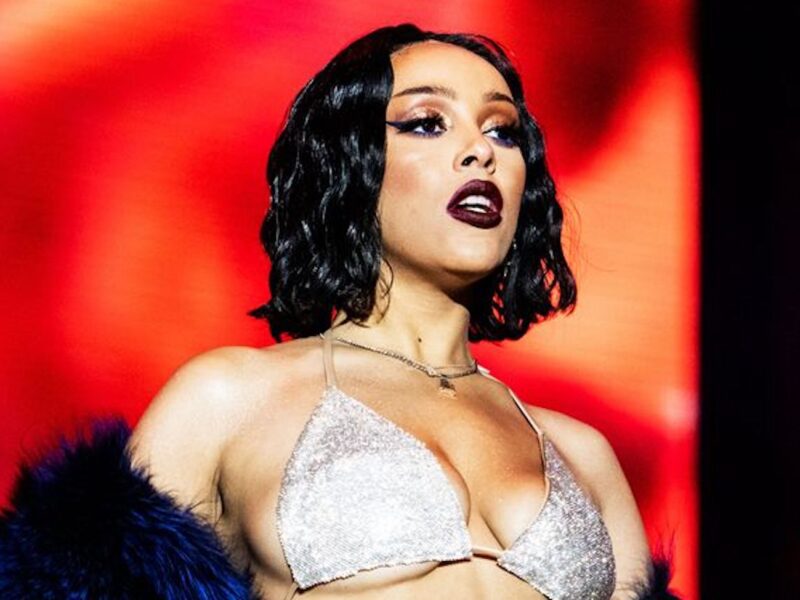
Veronica, Betty, and more: Why the women of ‘Riverdale’ are feminist AF
Every now and then we’re going about our daily business in this pre-apocalyptic wasteland of the internet and we stumble across the concerns of a young woman expressing how Riverdale “is garbage when it comes to feminism”. On Twitter, one user put it to us that though they’re a huge fan of the show, it fails when it comes to feminism because “Betty and Veronica are always fighting and being catty to one another” and there have “been some unpleasant sexist jokes”.
This sentiment has been shared by more than a few young viewers about Riverdale, a show otherwise loved since it premiered at the start of 2017. On Reddit, one user posted a thread asking “Is this a feminist show or is it all just superficial window dressing?” and zeroed in on the show’s occasional proclivity to rehash the “stupid love triangle” of the comics.

Some responses to the question suggested Riverdale is neither feminist nor anti-feminist, while others indicated the show should be allowed to exist without being “overtly feminist or overtly sexist” either way. What most people seemed able to agree on is that the show at the very least provides a progressive reimagining of a narrative that’s been published for almost eighty years as Archie Comics.
Before we drive lovingly into the heart of this argument like Jughead Jones (Cole Sprouse) screeching his bike into the Pops drive-through (Jughead needs to eat more burgers), we need to confront some of the times that Riverdale hasn’t been feminist. Season 1 of the show hit a number of progressive story potholes (we’re continuing this driving metaphor, just go with it) and subsequently crashed its feminist credentials straight into a temporary trash heap.

Early on, a faux-lesbian moment goes down between Betty (Lili Reinhart) and Veronica (Camila Mendes) where the River Vixens appeared to turn their cheerleading efforts directly towards queer-baiting the audience. There are occasional girl vs. girl rivalries between Betty & Veronica and between Cheryl (Madelaine Petsch) and every girl at Riverdale High (which thankfully got cleared up as the characters progressed.)
However, perhaps most upsetting is how Josie (Ashleigh Murray), Melody (Asha Bromfield), and Valerie (Hayley Law) of Riverdale’s premium (and apparently only) band are continuously sidelined in the story and hardly ever made part of the main adventures or developed further beyond entertaining their small town.
What Riverdale has always seemingly done right is listening to the concerns of fans and making small tweaks along the way. As such, season 2 improved in terms of progressive storytelling. There was greater LGBTQI representation with the introduction of queer biker Toni Topaz (Vanessa Morgan) and Cheryl’s journey in coming out as bisexual and enjoying a healthy relationship with a loving young woman.

Even Kevin Keller (Casey Cott) was slowly given more to do than just running shady one-liners about classmates, with storylines regarding cruising and a potential new love interest. Season 2 also improved on the awkward sexual harassment narrative of the first season that gave audiences the distasteful image of a white woman torturing a young black man in shackles that nobody particularly wanted to see.
The narrative surrounding poor little rich boy Nick St. Clair’s (Graham Phillips) attempted rape of Cheryl led to Riverdale presenting a positive message of women helping women when Veronica and Josie and the Pussycats (that’s right – they were used for a bigger purpose!) barged into the room to save their friend.

It’s also worth remembering that Riverdale is conspicuously unlike any other teen show currently or even previously seen on TV. As a dark modern day reimagining of a classic story, Riverdale both utilizes & subverts age-old narrative tropes, which means it doesn’t always hit the mark of perfection when it comes to “feminist” storytelling.
Riverdale is also a show that plays by its own rules, walking a tightrope between genres, displacing Riverdale as being a show that reflects anything even remotely realistic to how everyday teens live.
That doesn’t mean it isn’t willing to engage with real world issues, but more that it transplants such experiences into an otherwise wild & unpredictable narrative. One that’s rife with serial killers, teen detectives, cults, and even possibly (someday hopefully as a one-off Halloween special) zombies.

Social discourse just isn’t Riverdale’s modus operandi and frankly that’s how we want it to stay – but the show still showcases feminist credentials at a more foundational level that we think deserves celebrating.
As well as passing the Bechdel Test, Riverdale features a diverse set of female characters with their own narratives & journeys that exist outside of the show’s respective male characters. Betty & Veronica aren’t just bickering love interests (though they do bicker because, oddly enough, women are only human and can openly find fault with each other from time to time), nor are characters like Cheryl & Toni defined only by their aesthetic and respective social status.
Every main female character in Riverdale is smart, complex, headstrong, and drawn to lead their own stories outside of those of the male characters. Just like women in real life, they have flaws and they can be terrible from time to time – but can’t we all? And don’t we all deserve the opportunity to be as brilliant, as terrible, scheming, and sexual as we choose to be without those qualities being unnecessarily gendered & vilified as women?

That’s what Riverdale explores and it does so without fanfare or a damn parade just because it might be delving into the sometimes precarious terrain of a “feminist narrative”. Riverdale is an escapist teen drama built on a progressive foundation – we need shows like that to stay sane and they don’t always have to be hitting a high score of feminism to be worthy of our attention or our acclaim.
—
Are you ready to bingewatch Riverdale season 5 and see the women continue to kick butt? Let us know below.







